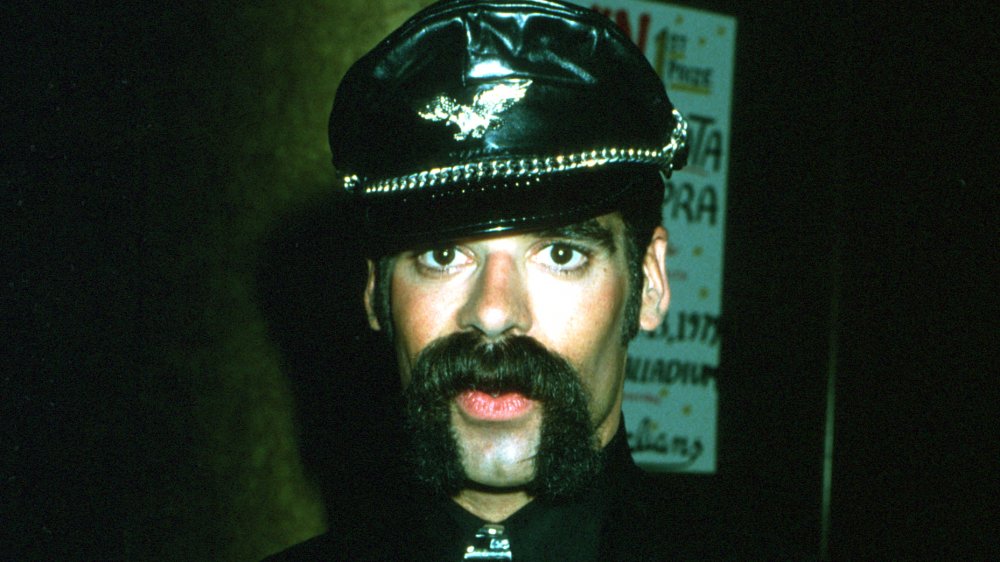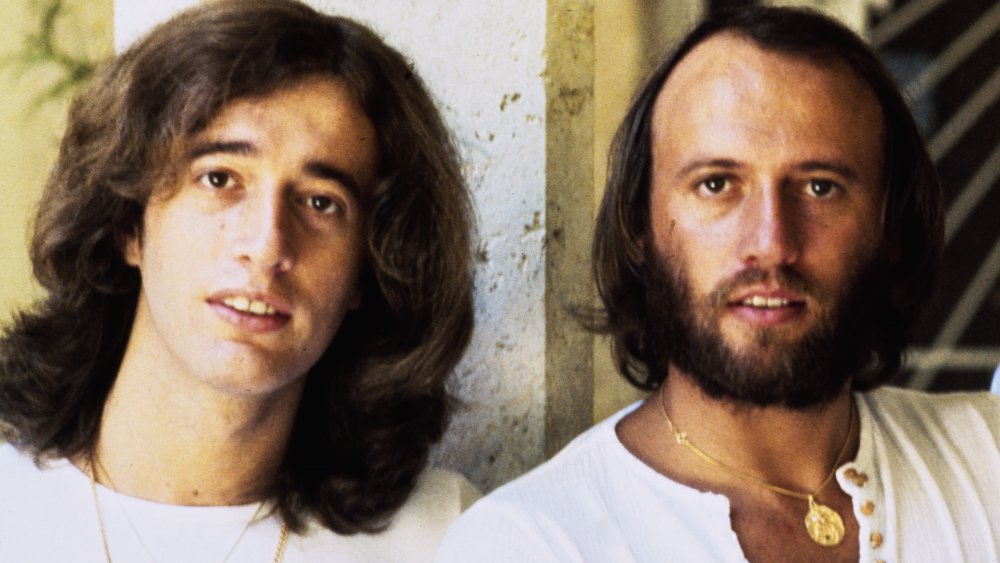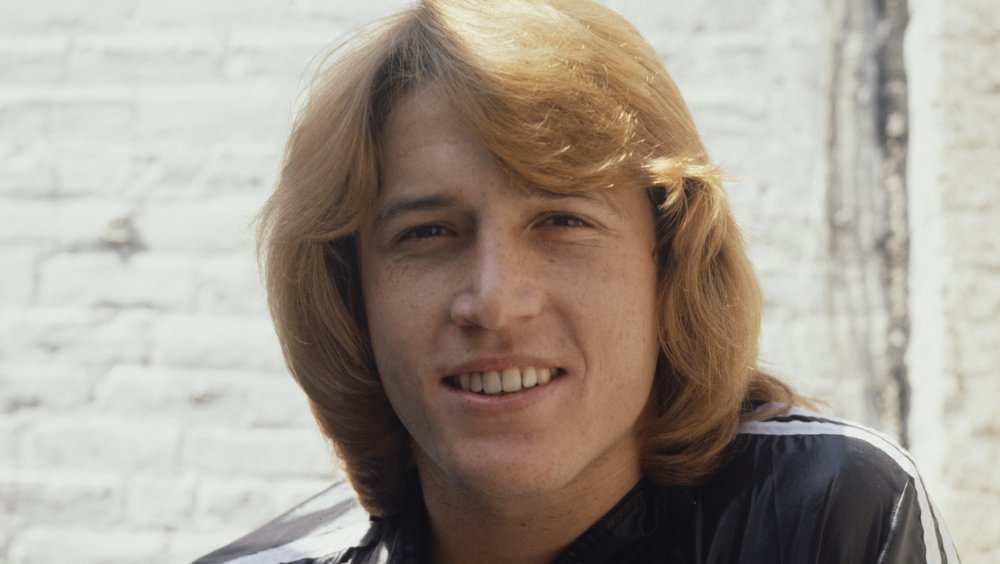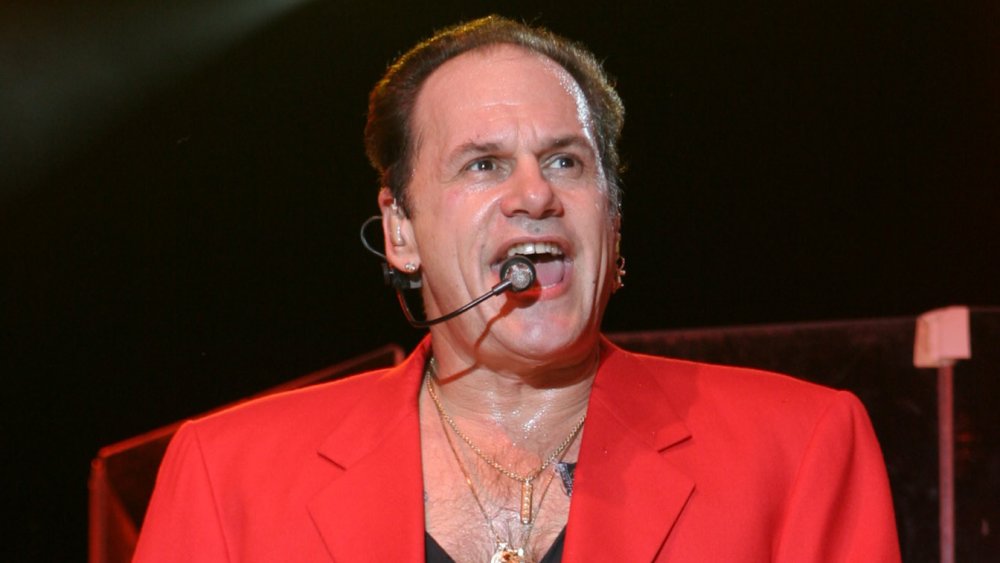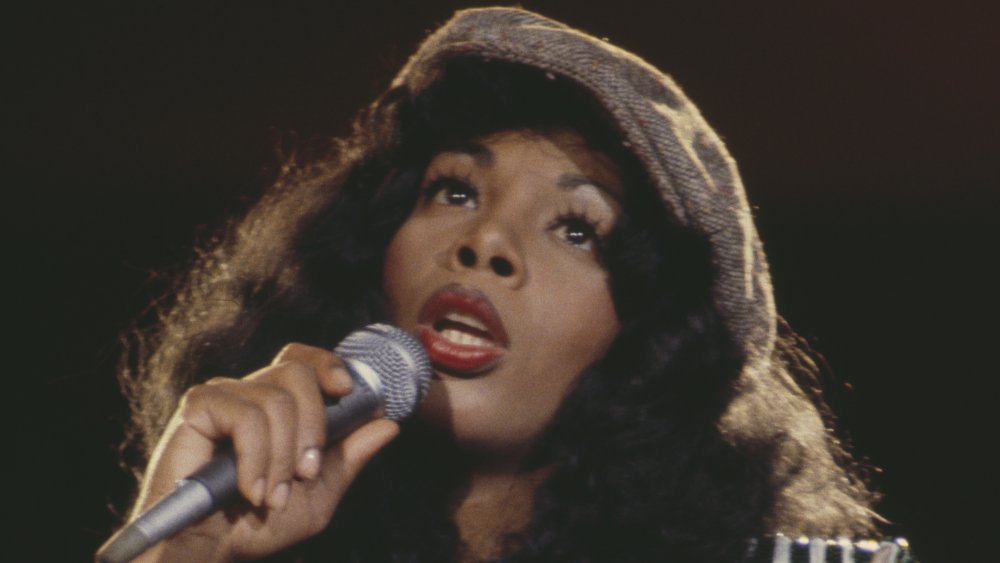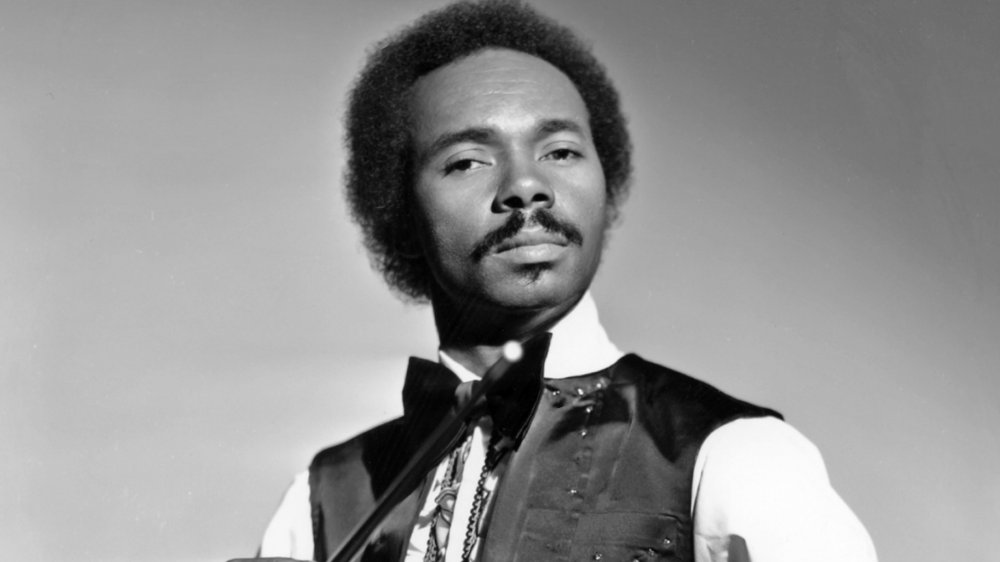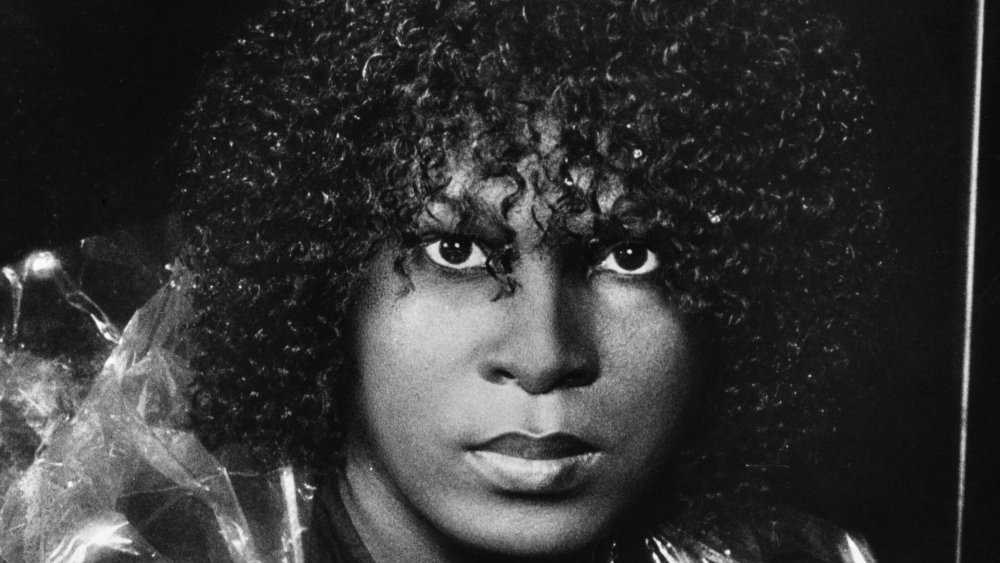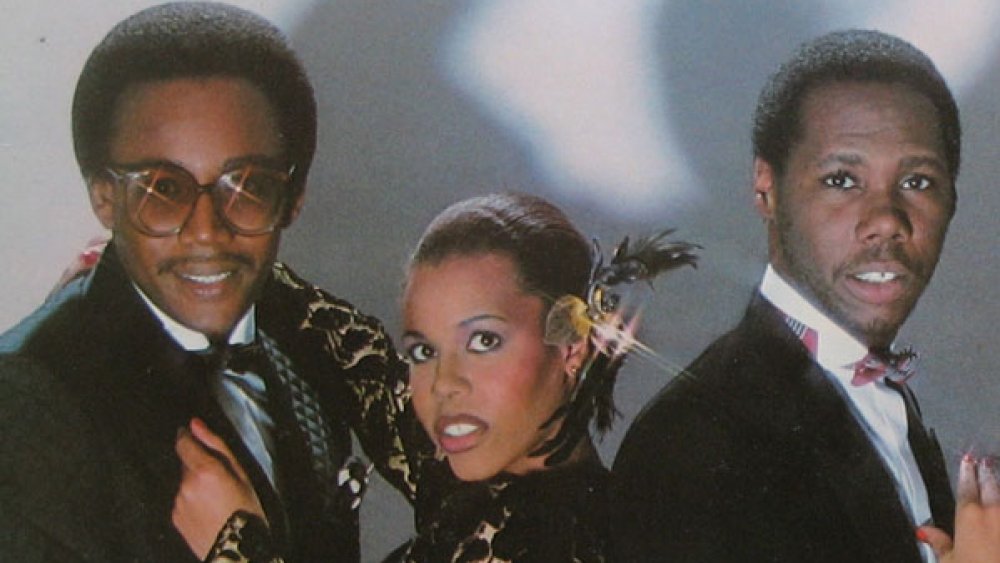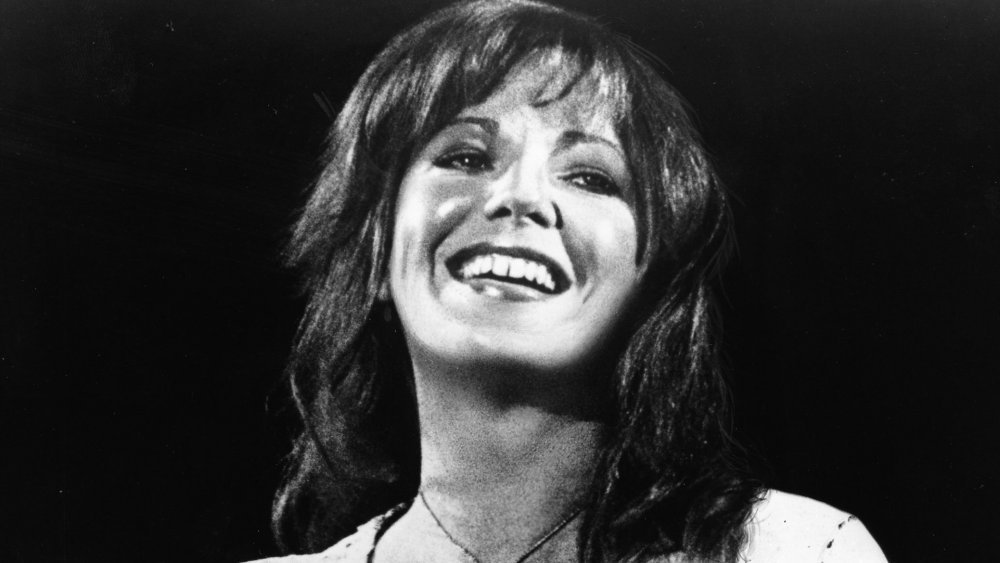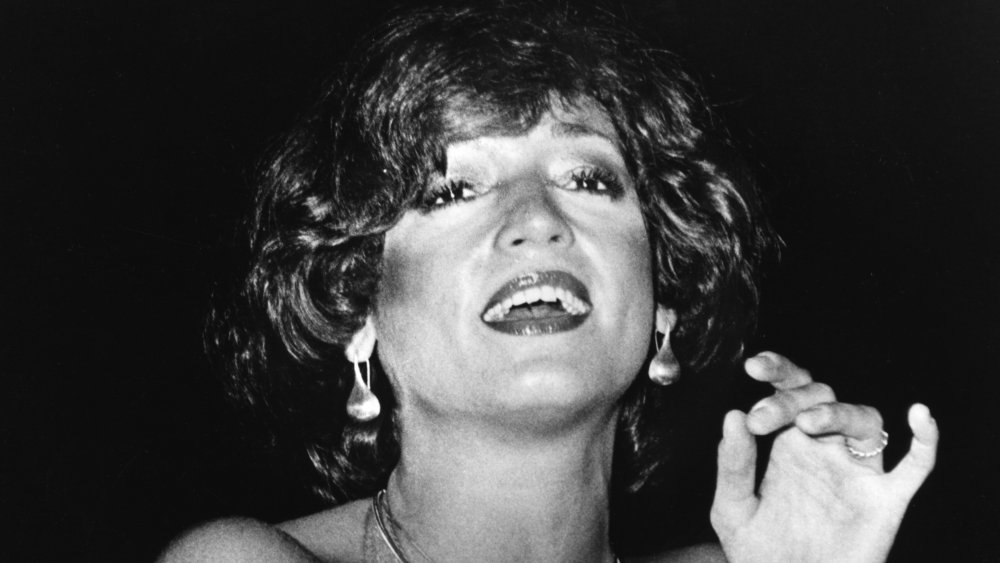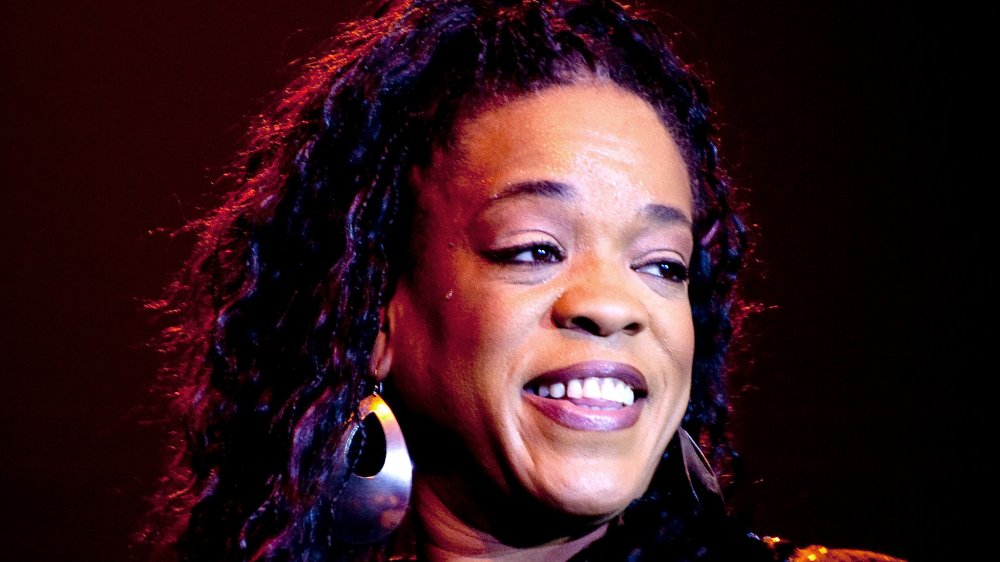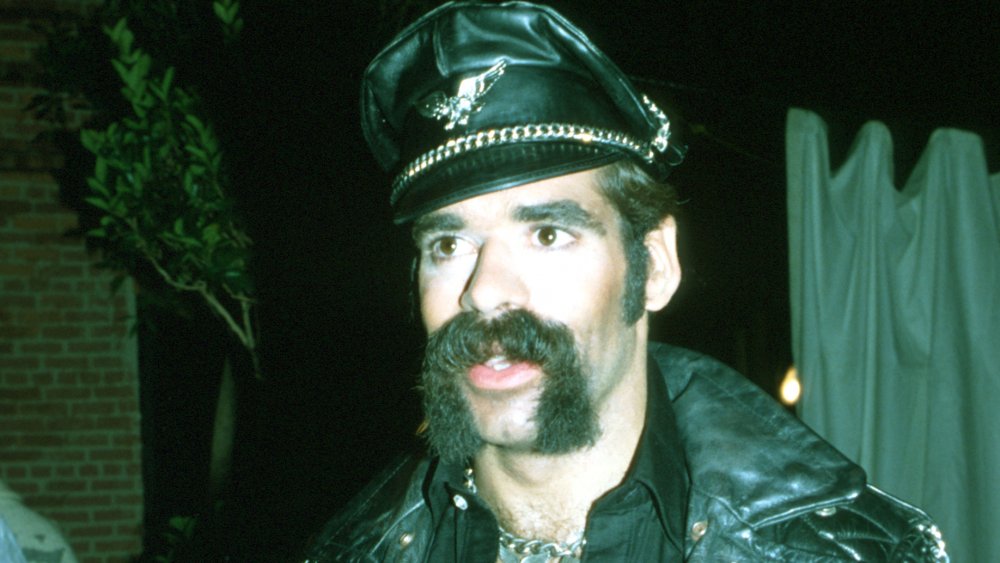Tragic Stories About Disco's Biggest Stars
The first half of the 1970s was one of the most stressful and upsetting times in American history, with President Richard Nixon's Watergate scandal and resignation, the ongoing Vietnam War, inflation, and fuel shortages. The late '70s response: delightfully superficial escapism in the form of disco. Short for "discotheque," disco music was a celebration of the club scene where well-dressed revelers would party and dance all night to DJs spinning groovy, funky, relentlessly happy songs. It combined synths, guitars, pulsating rhythms, and armies of session violinists to craft songs about joy, pleasure, and living in the moment. It's rare when one type of music so defines and is forever associated with a certain point in time, but disco is just that: quintessentially as '70s as the feathered hair and leisure suits worn by millions of disco dancers.
It's ironic and a little extra sad that so many of the musicians who made such happy disco magic didn't have altogether happy lives. Here are some disco superstars who endured more than their fair share of tragedy.
Two of the three Bee Gees died suddenly
There was no bigger disco act than the Bee Gees. The three Gibb brothers were pop sensations in the early '60s as a folky rock group, crafting vocal magic on songs like "To Love Somebody" and "I Started a Joke." The Bee Gees completely reinvented themselves in 1975 with the super-funky, proto-disco "Jive Talkin,'" ushering in five years of dance music dominance. "Nights on Broadway" and "You Should Be Dancing" established their disco bona fides, which led to the plum gig of creating the soundtrack for the disco-themed 1977 drama Saturday Night Fever. The set became one of the bestselling albums ever, thanks in large part to the Bee Gees' #1 singles "How Deep Is Your Love," "Stayin' Alive," and "Night Fever." The band's influential disco-meets-soft rock (plus lead singer Barry Gibb's falsetto) continued into 1979 with Spirits Having Flown, which produced more chart-toppers in "Too Much Heaven," "Tragedy," and "Love You Inside Out."
The Gibb brothers continued to record after the anti-disco backlash, but were more successful as songwriters — the trio wrote Kenny Rogers and Dolly Parton's country-pop smash "Islands in the Stream," for example. Family ties are strong, and only death could stop the Bee Gees. In January 2003, according to The Guardian, Maurice Gibb collapsed at his Miami home and had a heart attack during an intestinal operation. He briefly recovered before he passed away at age 53. Nine years later, Maurice Gibb's twin brother and fellow Bee Gee, Robin Gibb, died at age 62, of cancer complications and intestinal surgery, per the New York Times.
Andy Gibb struggled with drugs and a heart ailment
The youngest sibling of the Gibb family — the Bee Gees — Andy Gibb was 19 years old and looked like a movie star when he topped the charts for the first time in 1977 with "I Just Want to Be Your Everything," a song written by his brother Barry Gibb. Then he hit #1 again with his next two Bee Gees-crafted singles, "(Love Is) Thicker Than Water" and "Shadow Dancing." Gibb would take six more songs to the upper reaches of the Hot 100, and he soon shifted to acting. According to People, however, he failed to show up for rehearsals and performances for Broadway's Joseph and the Amazing Technicolor Dreamcoat so often that producers fired him.
Gibb had a debilitating addiction to cocaine, which Gibb announced got especially bad when he self-medicated over his public breakup with Dallas star Victoria Principal. In 1985, he sought treatment at the Betty Ford Center, according to the Desert Sun. By 1988, Gibb had reportedly sobered up and was getting ready to record new music and stage a comeback. That never happened. According to the New York Times, Gibb checked into John Radcliffe Hospital in Oxfordshire, England, in March 1988, seeking treatment for stomach pains. Within days, the 30-year-old singer was dead. Authorities reported that Gibb died of myocarditis, a viral infection of the heart muscle.
K.C. of the Sunshine Band was temporarily paralyzed
With its funky, frenetic, and delirious dance songs primarily about dancing, K.C. and the Sunshine Band happily provided fuel for the discoing masses. The group, fronted by singer and keyboardist Harry Wayne Casey (or "K.C."), released a string of singles as inexhaustible as the average K.C. and the Sunshine Band song, including "Get Down Tonight," "That's the Way (I Like It)," "(Shake, Shake, Shake) Shake Your Booty," and "I'm Your Boogie Man," all of which hit #1 on the pop chart. In 1979, as if prophetically aware that disco was on the way out, Casey and company switched gears and released the non-danceable ballad "Please Don't Go," which topped the Billboard Hot 100. For a follow-up in 1980, Casey ditched the band entirely, credited as just K.C. on the #2 hit "Yes I'm Ready" with Teri DeSario.
Just when it looked like Casey would navigate away from disco with his career intact, a series of tragedies threatened to undo everything. According to the Orlando Sun-Sentinel, Casey was involved in a serious car accident not far from his home in Hialeah, Florida in 1982. It left him paralyzed on his left side, and Casey had to use a wheelchair while he learned to walk again. The recovery led to a painkiller addiction, and after coping with more sadness after his father suffered several strokes before passing away, Casey entered drug rehab in 1986.
Donna Summer died of a rare form of cancer
Donna Summer was widely known as the "Queen of Disco," but her style and success transcended the brief period in which that style of music ruled pop culture. In 2013, Summer became one of the few dance artists inducted into the Rock and Roll Hall of Fame, in part because even her disco hits elegantly combined soul, blues, and rock to create something singularly hers. In 1975, Summer released the controversially ecstatic "Love to Love You Baby," her first of a whopping 16 number one dance club hits, which also included classics like "Hot Stuff," "Bad Girls," and "Last Dance," which became an evening-closing standard for countless discotheques and high school dances.
After disco died, Summer's huge voice carried her into the '80s, where she continued to rack up pop hits like and "She Works Hard for the Money" and "This Time I Know It's for Real." Tragically, Summer died in May 2012. According to Summer's family, via CNN, the disco legend died of a form of lung cancer unrelated to smoking. She was 63.
Van McCoy, composer of The Hustle, died before he turned 40
The Hustle was among the few clearly defined dance sequences of the disco era, and it came with its own routine-popularizing song, "The Hustle," which, confusingly, is completely instrumental (except for studio singers imploring listeners occasionally to "do the hustle!") and offers no instructions on how to do the dance itself. Nevertheless, the tune, driven by flutes and saxophones, was a monster hit that helped set off the late '70s disco craze, hitting #1 on the Billboard pop chart in July 1975, credited to Van McCoy and the Soul City Symphony.
That was McCoy's one and only major hit, but not his only success. In the 1950s, he was part of a moderately successful vocal group called the Starlighters, which led to McCoy starting a small record label and landing a job as a staff writer for Scepter Records, where he wrote hits for Jackie Wilson, Gladys Knight, and The Shirelles. In the '70s, McCoy moved heavily into production and arranging soul records for the likes of David Ruffin and The Stylistics. He recorded sporadically throughout all of it, but never had a hit of his own before or after "The Hustle." In late June 1979, according to the Washington Post, Ruffin had a heart attack at his New Jersey home and subsequently fell into a coma. A week later, the musician died in a hospital at the young age of 39.
Sylvester was a victim of the early AIDS crisis
Disco — the music, the venues, and the culture — originated in New York's gay club scene. However, anything hinting at a non-straight lifestyle was largely absent from the mainstream disco music that exploded in popularity in the relatively conservative 1970s. But disco star Sylvester, a man known as New York's "Queen of Disco," per the New York Times, refused to be anything but himself. He was one of the first and few celebrities to be openly gay and openly gender fluid, according to Billboard.
In the heyday of disco, Sylvester churned out numerous distinctive, signature hits, including "Dance (Disco Heat)," "All I Need," and "You Make Me Feel (Mighty Real)," which, with its shimmering keyboards, chugging beat, and strings backing up Sylvester's soulful, angelic, high-pitched warbling, might just be the definitive disco track. Sylvester continued to be an icon to both the dance music world and the LGBT community into the '80s. Sadly, he passed away in 1988 from complications of AIDS at just 42 years old. It was a diagnosis that he had been quite candid about at the time, in an attempt to build awareness about the epidemic, per IN magazine.
Two members of Chic faced health issues
A handful of late disco hits have a similar sound — crisply-produced with lots of bass, synth, and strings in the mix, among them Sister Sledge's "We Are Family," Diana Ross's "I'm Coming Out," and Chic's "Good Times" and "Le Freak." What do they have in common? All were produced by Chic's Bernard Edwards and Nile Rodgers. After Chic split up, Edwards went on to record for Rod Stewart and ABC, but his life was cut short in April 1996. After a reunited Chic played a gig in Tokyo, Rodgers discovered Edwards, who'd reported feeling sick earlier that day, in his hotel room, per the New York Times. The cause of death was later determined to be pneumonia; Edwards was 43.
Rodgers is an architect of modern music, not just disco. His hook from "Good Times" became a sample for the Sugarhill Gang's "Rapper's Delight," one of the first rap singles which introduced the culturally dominant genre to millions in 1979. Rodgers helmed Let's Dance, David Bowie's successful mid-1980s foray into pop music, Madonna's Like a Virgin, and he co-wrote and played guitar on Daft Punk's Grammy-winning 2013 mega-hit "Get Lucky." He's also dealt with prostate cancer for the better part of a decade. First diagnosed in 2010, he announced a full remission in 2013. However, the sickness recurred, and after doctors discovered a cancerous mass on his kidney in 2017, he opted for surgery. He's been healthy ever since.
Andrea True had a tough life
The life of Andrea True — born Andrea Truden — was, at various points, itinerant and tragic. Her father, Frank, died when True was 16 years old, and at 19, the future star got married, then dropped out of college when her husband's work required moves to Oklahoma, and then, in 1968, to New York. From that point, according to the New York Times, she pieced together a living, with small parts in movies (such as The Way We Were), writing music for commercials, and, primarily acting in pornographic films. True starred in more than two dozen adult films in the 1970s under names besides Andrea True, including Hot Channels (as Catherine Warren), Different Strokes (as Inger Kissin), Head Nurse (as Rose Stevens) and The Millionairess (as Sandra Lips).
In 1976, she released "More, More, More," a blissed-out, breathy-voiced, seductive disco jam. Credited to the Andrea True Connection, "More, More, More" was a huge hit, peaking at #4 on the pop chart in 1976, which she followed up with the moderately successful "New York, You Got Me Dancing" and "What's Your Name, What's Your Number." By mid-1978, the hits dried up, and True moved on, heading to Florida to become a nightclub singer. A complicated throat surgery ended her career as a vocalist, and she settled into a series of jobs, including drug counselor and telemarketer, before dying of heart failure in 2011 at age 68.
Vicki Sue Robinson passed away from cancer
"Turn the Beat Around" is one of the definitive, most irresistible disco hits, opening with a killer, expectant orchestral riff before giving way to the energetic vocal acrobatics of singer Vicki Sue Robinson, who thoroughly sells the lyrics of a song about how a song is constructed, and the powerful effect it can have on a crowd of dancers. Robinson only hit the top 40 once but remained a sensation in the world of dance music past disco and well into the '90s, knocking out hits like "Common Thief," "Daylight," "Hold Tight," and groovy covers of "To Sir With Love" and "Everlasting Love."
And to think that Robinson came relatively late to pop music. She appeared in Broadway musicals when she was still a teenager, including shows like Soon and Jesus Christ Superstar, and acted in movies, including To Find a Man and Going Home (as "Hippie Girl"). After the death of disco, Robinson turned to singing commercial jingles and toured her one-woman nightclub act Behind the Beat. And then, shockingly, it was all over. In 2000, Robinson died at her Connecticut home of cancer, according to the New York Times. The singer was 46 years old.
Evelyn Champagne King lost a child and nearly died
"Shame," a disco-era smash hit about deep romantic yearning, has a soulful, world-weary feel to it, and yet the 1977 dance music classic was released by Evelyn "Champagne" King when she was just 17 (or too young to actually buy champagne). King continued on as a notable disco diva throughout the '70s and while most acts closely associated with the genre couldn't weather the disco backlash, King did. She segued into a solid career as a more straightforward R&B singer in the 1980s, even topping the charts a couple of times with "I'm in Love" and "Love Come Down."
Also in the post-disco decades, King coped with a number of deeply sad and tragic events. As detailed in the TV series Unsung, King delivered a baby daughter in 1987, one month prematurely via an emergency C-section. Johnniea Champagne King was born with a number of severe health problems, including brain damage, and had to be kept on life support at all times and fed with a tube. Just after her second birthday, the child passed away naturally.
In 2006, King developed a fibroid, a tumor-like growth, in her uterus. Symptoms can include voluminous bleeding and terrible pain, and it led to King briefly, technically dying. "It took my life. Literally," she told the Los Angeles Sentinel. "I had to be brought back."
The Village People's Glenn Hughes died of cancer
So many elements of disco came from New York's gay nightlife scene of the '70s, and few disco acts represented that subculture more outwardly than the Village People. Because homosexuality was not widely accepted in the U.S. at the time, it wasn't a topic that was widely discussed, and so record buyers, radio listeners, and disco dancers maybe didn't fully grasp that many of the Village People's hits were anthems of gay pride and paeans for acceptance and living true to one's own self. The public merely enjoyed the gimmick of the Village People, in that each member wore a costume embodying a masculine stereotype, such as construction worker, soldier, cowboy, and for singer Glenn Hughes, a biker.
Glenn Hughes was a motorcycle enthusiast when he wasn't singing on "Y.M.C.A.," "In the Navy," "Go West," and "Macho Man," although Village People producer Jacques Morali crafted the biker character after patrons of a New York leather bar and sex club. The world grew weary of the Village People's schtick by 1980, and the group couldn't transition into a post-disco world, and it faded into obscurity after the marginal reception of its 1981 costume-free New Wave album Renaissance. Hughes, sadly, died of lung cancer in March 2001 at just 50, per Deseret News.
